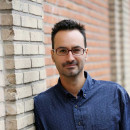Presentation
What does biology have in common with economics? At first glance, the answer is perhaps: “Nothing.” While biologists study cells, plants, animals, and the human body, economists analyze markets, firms, and other institutions created by humans. However, these two disciplines do share an important goal, namely, to discover laws governing the behavior of living beings. At second glance, then, the answer is, “Potentially a lot.”
Arguably, biology and economics—and more generally, biology and several other disciplines represented at IAST—complement each other in many ways. To name but a few natural connections:
• Evolutionary logic, the central theoretical building block in biology, is increasingly used by economists to predict preferences from first principles, such as habitat. Researchers in anthropology and psychology also sometimes draw on predictions based on evolutionary logic.
• Biologists, on the other hand, are increasingly interested in modeling learning as well as information processing and signaling, topics that have been extensively studied in economics and psychology.
• Two powerful forces stand out as being ubiquitous in most species: competition and cooperation. However, economists and biologists have often applied them to different objects of study (firms vs individuals), and they have thus approached the issues of competition and cooperation from different angles.
• Biologists, anthropologists, economists, and psychologists alike have devoted significant resources to study behavior within the family and in mating situations; what can researchers from the four disciplines learn from collaborating with each other?
• Economists and biologists may together build models that recognize that humans are but one species of the dynamic ecosystems which cover our planet.
The Biology program at the Institute for Advanced Study in Toulouse promotes the exploration of these and other common research interests by organizing a range of activities, including an annual Economics and Biology Workshop, an Economics and Biology seminar series (2012-2016), a Ph.D. course for economics students, and an advanced Master in Economics and Ecology (which opened in 2017).
The Biology program benefits from regular visits by long-term visitors Jörgen Weibull (Stockholm School of Economics) and Laurent Lehmann (Université de Lausanne).
The Biology program also benefits from regular involvement by researchers at several key partners in the Toulouse area, notably Évolution et Diversité Biologique (EDB), Station d’Écologie Théorique et Expérimentale (SETE), and Anthropologie Moléculaire et Imagerie de Synthèse (AMIS).

